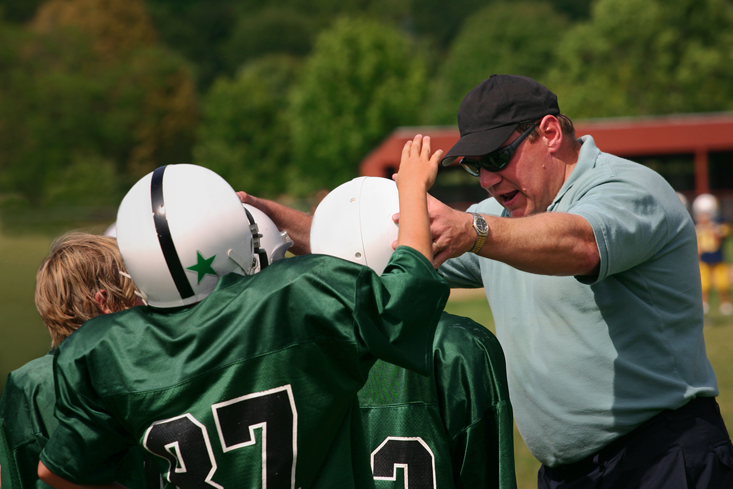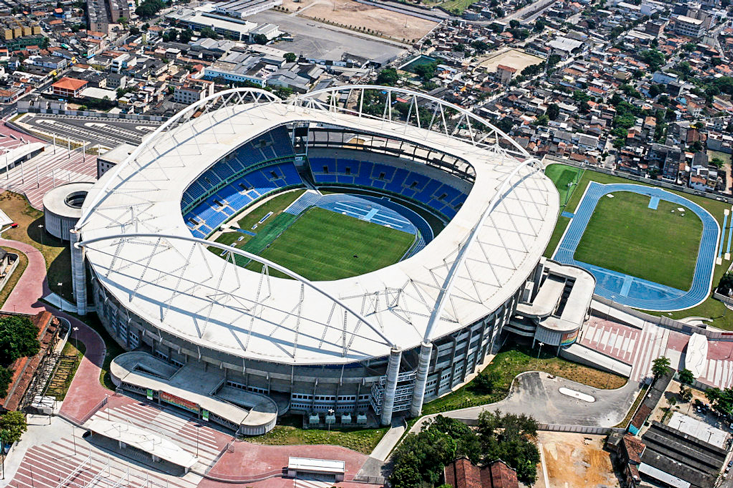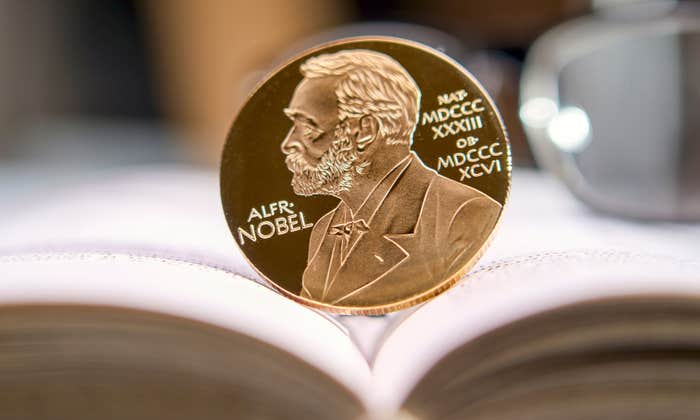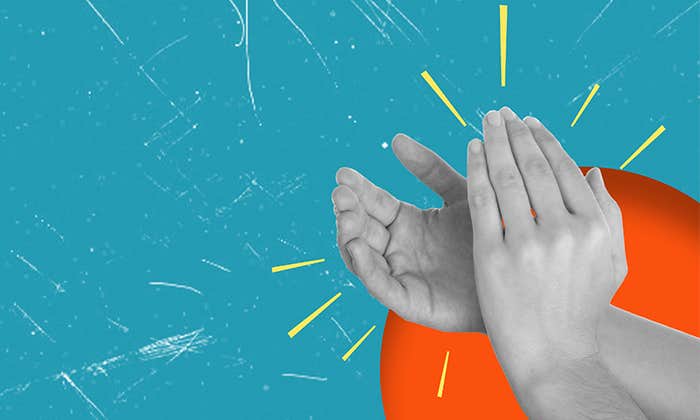There’s a strange sort of reverence that surrounds our relationship with sports. Jay Coakley first noticed it as a graduate student at the University of Notre Dame, in Indiana; he was studying sociology, so perhaps it was hard not to analyze the sport-centered culture that surrounded him. He observed the hype around football weekends, the mania of pep rallies, and the fundraising enthusiasm of booster clubs. He noticed that football players always seemed to have the nicest cars—and heard through his wife, who worked at the registrar at the time, that sometimes transcripts were changed to keep players on the field.
He was so intrigued that he proposed doing his thesis and dissertation on the topic.
“My faculty advisor in the sociology department said, ‘Are you crazy? You have to focus on something serious, not sports,’ ” Coakley recalls. “I said, ‘How can anything be more serious than something that evokes almost 100 percent of the interest of 100 percent of the people on this campus for five to six weekends of the year at least?’ ”
Coakley ended up doing his dissertation on the racial and religious identities of black Catholic priests, and his Master’s thesis on the race violence seen around the country in 1968. Yet sport, laden as it was with many of the societal tensions he saw in his graduate work, continued to draw him back in. He proposed courses on sports and leisure; he conducted independent studies discussing what sports meant to various individuals; he worked with PTAs and parks and recreation departments; and he began focusing on coaching education. As the years passed, Coakley became one of the most respected authorities in the growing field of sports sociology—a much more serious field than his academic advisor might have ever expected.
Along the way, Coakley developed a theory that finally explained the strange behavior he had first seen at Notre Dame, and which he continued to see throughout the athletic world. He called it “The Great Sports Myth”: the widespread assumption that sport is, inherently, a force of good—despite the fact that it can both empower and humiliate, build bonds and destroy them, blur boundaries and marginalize.
Nautilus sat down with Coakley to talk about the unassailable mythos around sport, and the widespread impacts it can have on our society.
How did you come up with the idea of the Great Sports Myth?
I developed the Great Sports Myth when I was working here in Fort Collins, with a group that was opposing Colorado State University building a $220 million on-campus football stadium, the final cost of which—with just interest—would be over $400 million, and there will be cost overruns in addition to that. All when they have a stadium two miles from campus that needs some renovation, but nevertheless has been a decent place to play. I was working with a group that was opposing this—and by the way, 80 percent of the faculty opposed it, 65 percent of the students opposed it. But there were people who were talking about what this new stadium was going to do, and no matter what kinds of data you came up with to ask them to raise questions about their assumptions, they rejected the data. They rejected all the arguments.
It seemed to me that their position was grounded in something very much like religious faith. I was trying to figure out what was going on, and that’s when I came up with this notion of the Great Sports Myth, which they were using as a basis for rejecting facts, good studies, good logical arguments, and stating that: This is going to be good despite what anybody was saying in opposition.
What’s the historical context of this attitude?
It appears that sports became integrated into American society as a spinoff of what was going on in England. There was this sense that the sons of the elites in society needed something to make them into men, and sport was identified as the mechanism through which that could be done.
That idea was transferred to the United States, but in the United States the importance of sports was tied to a host other factors as well: The need for productivity, the need to socialize and assimilate different immigrant groups, the need to create a military, the need to control young people running loose on the streets during the latter part of the 19th century. So what happened was that sports came to be identified as an important socializing mechanism for boys, a social control mechanism, and a developmental mechanism.
Because sport is a source of excitement, pleasure, and joy, we are less likely to critique it.
People became committed to sports because it was tied to their own interests as well. And it got put on a pedestal. We even revised Greek history to reify the purity and goodness of sports—talking about how sports were important for developmental purposes among the Greeks, and how they stopped wars to have the Olympic Games.
Sport then gets integrated into the schools in the United States, and all sorts of functions are attributed to it without our ever really examining whether those were valid or not. And so we’ve developed this sense that sport is beyond reproach. If there are any problems associated with sport, it has to be due to bad apples that are involved in it, who are somehow incorrigible enough that they can’t learn the lessons that sport teaches, so we have to get rid of them.
That fits into American culture as a whole, and our emphasis on individualism, personal choice and individual responsibility.

How has this culture trickled down to other aspects of society?
Because sport is a source of excitement, pleasure, and joy, we are less likely to critique it. Sport has also served the interests of powerful people within our culture. It reifies competition and the whole notion of meritocracy, of distributing rewards to the winners, and that people who are successful deserve success. It becomes tied to all sorts of important factors within our culture.
There is this whole sense of the connection between sport and development, for example— both individual development and community development—that gets used by people who want to use sport to further their own interests. For example, by getting $500 million of public money for a stadium that they used to generate private profits.
There are dozens of other examples, and the Olympics is a classic one: If we host the Olympics all of these positive things are going to occur. And people talk about these things as if they are unquestionable truths, and believe them because it ties into their basic sense that sport is pure and good to begin with.
We see, time after time after time, billions and billions of dollars being spent on hosting mega-events like the Olympics, even though there is a history of those billions of dollars not leading to the outcomes that past hosts assumed would occur.
How have you seen this play out during this year’s Olympics, in Brazil?
Rio’s bid document had all of these wonderful things in it: Increasing sport participation for everybody; developing local programs; tying sport education programs more directly with curriculum in the half of the day when kids are in school; and changing those programs so you had more certified people, with at least some kind of educational training, running sport education programs.
But as with all bid documents, as the games get closer and closer, various kinds of lobbying occurs, and various interests get prioritized over others. Of course, one of the high-priority interest is: How are we going to be able to show ourselves off, in terms of athletic excellence and winning medals at the Olympics? That comes to be the most important thing, so that’s where all the money has gone. And all of the other promises that were made to develop other aspects of sport within the country as a whole that would benefit communities and young people in particular just got pushed to the wayside.
What the hell were we doing it for? You know, knowledge for the sake of what?
We want to try to make the case that there is a different approach to hosting mega events. Rather than buying into this notion of legacy, which has been sold by the International Federation of Association Football (FIFA) and the International Olympic Committee (IOC) for their own interests, we believe that the negotiations with these NGOs [non-government organizations] should be based on a leveraging approach. A leveraging approach would be grounded in the goals of the local community first and foremost, rather than the goals of FIFA or the IOC or the Pan-American games or whomever.
Basically what we are doing is looking at how the legacy approach is failing, and what would a leveraging approach look like. We’re not the first ones talk about this, but we are focusing on Brazil as we talk about it.
Is there a communication problem between academics who have realized the negative outcomes of sport, and the people who are actually carrying out these massive programs?
I’ve been asking that question for a long time [laughs].
When it comes to public sociology and those leverage points, we in the sociology of sport probably have not been very politically astute, in terms of figuring out how best to communicate messages to the so-called sport establishment. On the other hand, the vested interests in the status quo of sports within this culture, and many other cultures, are so strong. It’s very difficult to get anybody to take anything seriously that won’t contribute to the growth and profit-generating efficiency of the current system.
In other words, if you have these kinds of conservative goals related to social change—improvement and growth—then people will listen to you. If you have goals that are focused on a desire to reform sport, people get very defensive within the sport establishment. That is, unless you talk about increasing participation, because they are all for that. But it’s about increasing participation into the existing structures. If you have transformational goals, where you want to actually change the culture of sport and the structure of sport, that’s where you run up against a brick wall. Nobody is willing to listen there.

Have sociologists had any success in changing this culture?
A lot of research in the sociology of sport was showing that, in media coverage of sports, there are significant differences in how coverage occurred for men and for women. This is in terms of the terminology used, such as women being referred to as girls, or being referred to by their first names by announcers. This is a really simple thing, but pointing that out to some of the network people—the Women’s Sports Foundation and all sorts of other groups were working on this—it was big just to get announcers to change their gender terminology to start respecting women as athletes, taking them seriously as athletes. We still don’t have much coverage of women’s sports in the news. It’s still a tiny fraction of what the men get. But over the years that coverage has changed, and gotten much more serious.
Also, there were all sorts of racist undertones to the kinds of coverage that was occurring. We discovered that in the sociology of sport by doing analyses of the narratives that were used in sport commentary, and pointing that out to programming people that coverage was racist, basically. There’s been significant changes there. There’s no announcer that will watch a black halfback run down the field and say, ‘look at that monkey run,’ which was done in the past.
You’ve done a lot of work on youth sports. How did you get involved in this research?
I came of age in graduate school as a sociologist during the 1960s. So I was involved in a lot of things related to the civil rights movement, the women’s movement, the student movement, those kinds of things—not so much as a participant, but certainly as an observer.
So I was concerned about the connection between sociology and the rest of the world, and the question that I asked myself was, ‘could good research be used as a basis for facilitating, inspiring, or guiding progressive social change?’ My sense was, that if it wasn’t, if we didn’t do sociology like that, then what the hell were we doing it for? You know, knowledge for the sake of what?
I tied that to sport as I was thinking about what was going on at the University of Notre Dame. But then I had two kids, and as they hit 7 or 8 years old they were involved in youth sports. I started to read all sorts of things on youth sports and individual development, a lot of social psychology stuff, some psychology of sport—and started doing research on youth sports.
I was learning all sorts of things that were raising questions about how youth sports were organized, and what we could expect from them under certain conditions. This is in the mid-70s, before people were really talking too much about coaching education, or about what needed to change in youth sports in order for them to live up to the promise that most people felt came with involvement.
What have you found?
Early on the big findings were really pretty simple. Positive reinforcement is better than negative reinforcement. A lot of coaches were treating kids like adults, and our programs were not organized in age-appropriate ways. Also, we were often times teaching little boys things about masculinity that were going to get them in trouble in the future.
Now I’m working with Tom Fairey, from ESPN, on an Aspen Institute sport and society program called Project Play. Basically, for the last three years, we’ve been trying to create a social movement in the United States that would reinvent youth sports. People are starting to think about what is going on in youth sports, and what’s good for kids relative to what we’re doing right now. Youth sports in the United States are among the worst in the world.
What is your vision of a new youth sports paradigm?
I remember in the late 1970s when I was living in Colorado, and I went to the local hockey rink and they had youth hockey programs there. I saw all of these 6-year-olds skating the length of the ice. I did the math on leg length ratio to the rink length, and told the adults running the program that if they were playing under similar circumstances, the rink would be so big that they could hardly see the goal at the other end. And that they wouldn’t have any fun. I recommended that they turn the teams around and play width-wise, four-on-four, have no goalies and tiny goals, and have all these touches on the puck and passes. Basically, to increase active involvement and chances to score, to increase motivation. They looked at me like I was crazy.
But now USA Hockey, in their American development model, has done exactly that. I ran into a brick wall for basically the better part of 30 years on that and on coaching education. But all of those things required rethinking game models and rethinking coach-athlete relationships, and what was expected of men at that particular time. It was all men coaching kids, men who thought that somehow sport was part of their DNA, and that nobody could teach them anything that they didn’t know about teaching sport.
I was part of the team that wrote the Project Play report. There are eight recommendations in that report that can be used as guides for change in youth sports. A couple of my favorites are revitalizing play and informal games, and thinking small, and making sure that the kinds of activities that we are providing for our young people are age-appropriate. That is tied to the development of physical literacy in our culture, which we measure very low on. Kids who are in youth sports, which are highly specialized in learning only one set of movements, are using only certain muscles. Even though they are among the most active kids in our culture, they are physically illiterate.
We just had a conference here in Colorado that I organized, and we had a couple of great physical educators take all the people who were attending, all of whom were youth sport administrators and managers and supervisors, alongside a bunch of kids from a school here in Denver. We had these physical educators put us through physical literacy assessments and exercises. It was really eye-opening for all of these youth sport people to understand that when we talk about developing skills in football, or baseball or basketball or soccer, that about 80 percent of what they need to know to become physically literate is not included in their organized sport participation. The timing is really right for that.
Brian J. Barth is a Toronto-based writer focused on culture, science, and the environment.
Lead image: Gabriel Heusi / Brasil2016.gov.br/ Wikipedia






























